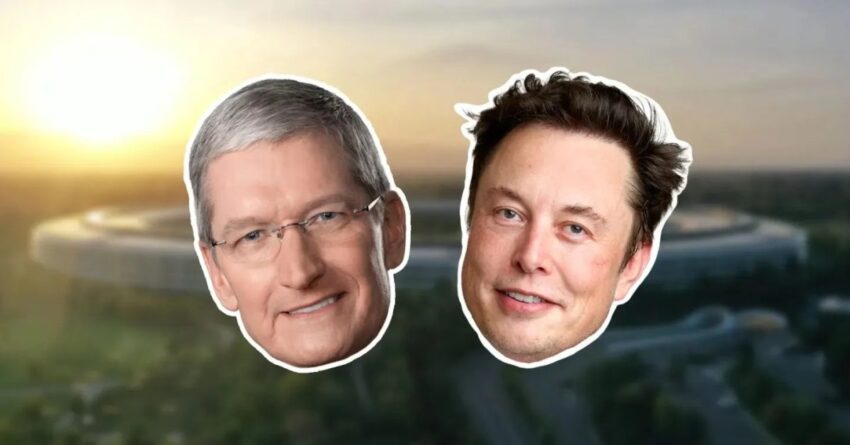
apple and openai fail to dismiss elon A U.S. District Judge has denied Apple’s motion to dismiss a significant antitrust lawsuit filed by Elon Musk, which accuses Apple and OpenAI of stifling competition in the artificial intelligence (AI) sector.
apple and openai fail to dismiss elon
Background of the Lawsuit
The lawsuit, initiated by Musk’s company, X.AI, was filed in response to what Musk alleges are anti-competitive practices by Apple and OpenAI. Musk has been vocal about his concerns regarding the concentration of power in the AI industry, particularly as it pertains to the influence of major tech companies. He argues that these companies are engaging in practices that limit competition and innovation, ultimately harming consumers and smaller companies.
Elon Musk, a prominent figure in the tech industry and the CEO of multiple companies including Tesla and SpaceX, has a history of advocating for a more open and competitive market. His concerns about AI have been well-documented, with Musk frequently warning about the potential dangers of unregulated AI development. This lawsuit represents his latest effort to address what he perceives as monopolistic behaviors that could hinder the growth of a diverse and competitive AI landscape.
Details of the Antitrust Claims
The crux of Musk’s lawsuit revolves around allegations that Apple and OpenAI have engaged in practices that unfairly restrict competition in the AI sector. Musk claims that both companies have collaborated to create barriers that prevent new entrants from gaining a foothold in the market. This includes allegations of collusion to limit access to essential resources, such as data and computing power, which are critical for developing AI technologies.
According to the lawsuit, these practices not only harm potential competitors but also stifle innovation within the industry. Musk argues that by consolidating power, Apple and OpenAI are effectively controlling the narrative around AI development, which could lead to a lack of diversity in AI applications and technologies.
Legal Proceedings and Judge’s Ruling
The recent ruling by U.S. District Judge has significant implications for the case moving forward. The judge’s decision to deny Apple’s request to dismiss the lawsuit indicates that the court believes there is enough merit to the claims for the case to proceed. This ruling allows Musk’s legal team to continue gathering evidence and building their case against Apple and OpenAI.
Apple had sought to dismiss the lawsuit on various grounds, including arguments that Musk’s claims were speculative and lacked sufficient evidence. However, the judge found that the allegations presented by Musk warranted further examination. This ruling is a critical step in the legal process, as it allows the case to move into the discovery phase, where both parties will have the opportunity to present evidence and arguments to support their positions.
Implications for the AI Industry
The outcome of this lawsuit could have far-reaching implications for the AI industry as a whole. If Musk’s claims are upheld, it could lead to increased scrutiny of the practices of major tech companies and potentially result in regulatory changes aimed at promoting competition in the AI sector. Such changes could benefit smaller companies and startups, allowing them to compete more effectively against established giants like Apple and OpenAI.
Moreover, a ruling in favor of Musk could set a precedent for future antitrust cases within the tech industry. It could encourage other entrepreneurs and companies to challenge perceived monopolistic behaviors, fostering a more competitive environment that encourages innovation and diversity in technology development.
Reactions from Stakeholders
The response to the lawsuit and the recent ruling has been mixed among stakeholders in the tech industry. Some industry experts and analysts have expressed support for Musk’s efforts, arguing that a more competitive landscape is essential for fostering innovation. They believe that the concentration of power among a few major players can stifle creativity and limit the potential of new technologies.
On the other hand, some critics argue that Musk’s lawsuit may be more about personal grievances than genuine concerns for competition. They suggest that Musk’s history of rivalry with other tech leaders may be influencing his motivations. This perspective raises questions about the broader implications of the lawsuit and whether it will ultimately serve to benefit the industry or simply fuel further conflict among major players.
Broader Context of Antitrust in Tech
The Musk lawsuit is part of a larger trend of increasing scrutiny of antitrust practices within the tech industry. In recent years, regulators and lawmakers have become more vigilant in examining the behaviors of major tech companies, with several high-profile cases emerging. This includes investigations into companies like Google, Facebook, and Amazon, all of which have faced allegations of anti-competitive practices.
The growing focus on antitrust issues in tech reflects a broader societal concern about the concentration of power in the hands of a few major corporations. As technology continues to play an increasingly central role in daily life, there is a growing recognition of the need for fair competition to ensure that consumers have access to a diverse range of products and services.
Potential Outcomes and Future Considerations
As the lawsuit progresses, several potential outcomes could emerge. If Musk’s claims are validated, it could lead to significant changes in how AI companies operate and interact with one another. This might include new regulations aimed at promoting competition and preventing collusion among major players.
Conversely, if Apple and OpenAI successfully defend against the claims, it could reinforce the status quo, allowing these companies to continue their current practices without significant changes. Such an outcome may discourage other companies from pursuing similar legal challenges, potentially allowing monopolistic behaviors to persist.
In either scenario, the lawsuit highlights the ongoing tensions within the tech industry regarding competition and innovation. As AI continues to evolve and become more integrated into various sectors, the implications of this case will likely resonate far beyond the courtroom.
Conclusion
The denial of Apple’s motion to dismiss Elon Musk’s antitrust lawsuit marks a pivotal moment in the ongoing debate about competition in the AI sector. As the case unfolds, it will be closely watched by industry stakeholders, regulators, and consumers alike. The outcome could shape the future of AI development and influence how major tech companies operate in a rapidly evolving landscape. With Musk’s track record of challenging the status quo, this lawsuit may serve as a catalyst for broader discussions about competition, innovation, and the ethical implications of AI technology.
Source: Original report
Was this helpful?
Last Modified: November 14, 2025 at 9:37 am
0 views















